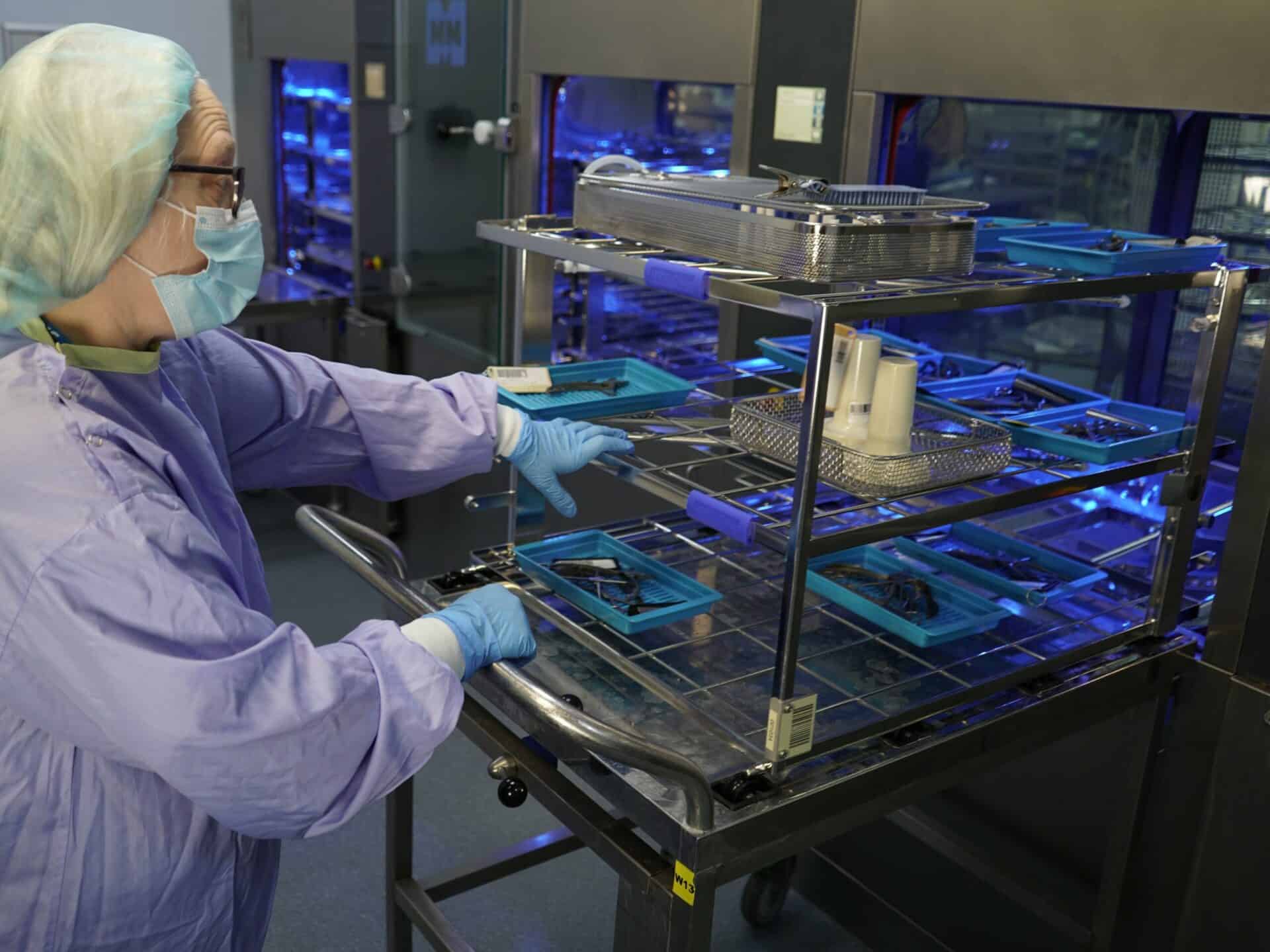Over a period of thirty years, you would expect an industry to have developed beyond recognition. The introduction of innovative technologies, developments in machinery, implementation of new guidance & industry standards and advances in IT&C. These areas have all had a significant impact within the decontamination industry, leading to a more robust and safer process for making medical instruments safe to use in surgery, diagnosis, and treatment.
It is clear we have made amazing progress to where we were back in the 1990s, but in other ways, we have not progressed, in fact in one key area we are going backwards compared to other healthcare industries.
Running and maintaining a Sterile Services Department or an Endoscopy Decontamination Unit takes vast amounts of financial investment. Considering the capital costs for washer disinfectors and sterilizers, the initial purchase, maintenance, repairs, testing, validation and then there are the replacement costs for these machines which is usually around the 10-year mark. The list of costs goes on, the next big spend would be raw material costs; for sterile barriers, wraps and pouches and chemicals and detergents. Then there the costs for specialist equipment for example tables, sinks, trolleys and racking. IT software for tracking and tracing the medical devices through the decontamination process to patient use. Constraints on budgets across the NHS are tight and every penny spent must be carefully considered for any acquisition, but the department cannot function if any of these elements are missing. Whilst all of the aforementioned aspects are critical, no department can function effectively without a competent workforce.
Patient safety is at the forefront of the decontamination industry, and it is imperative that the process of cleaning, disinfection and sterilization is fulfilled by professionally trained and competent staff.
So how much of the department’s budget is available for their training and professional development?
In most circumstances the available budget for training is either zero or a ridiculously small amount per person when you divide the available funds by the number of staff in the department. One department calculated their staff allocation for training was £30 per person, per year.
What meaningful training would be available at that price? Why is there no training budget available for these roles?
Historically departments had a budget line for staff training but over the years the availability of relevant courses have diminished, meaning funds allocated to training budgets were not utilised, so the budget line was taken away or reallocated. This situation was further affected as numerous courses at varying levels have been created, launched, operated for a short period of time but then disbanded. The decontamination industry standards do not provide any structured training requirements, so this vicious loop keeps repeating leaving department managers struggling to secure funding for training year after year.
A key factor which is missing is a structured career pathway for staff to progress their way through the roles in a department, with some staff members aspiring to become a quality manager or a department manager. Details of ideal pathway is not stated as part of any of our guidance. It explains the roles required to manage the departments but does not define the experience, education and qualification required to do the role effectively.
Succession planning is a hot topic now. Thirty plus years ago staff progressed through the different levels in the department with a focus of becoming a department manager, with support from the following education – NVQ and TVQ, Decontamination Foundation Qualifications (degree level) and Management Certificates. However as this was over 30 years ago staff who did manage to advance their careers through this route are now approaching retirement. This leaves an industry workforce with a limited number of people with the required skills for the roles. Currently there are no decontamination management qualifications available. Current job adverts for this level today are requesting for the applicant to be educated to degree level, with no specification of the subject. Granted this level of education does provide some relevant skills but the main purpose if it is not subject related shows the recruiter that the person has a strong work ethic, which is an ideal competence to have in this industry, but more support is clearly needed as they have the critical responsibility of each item processed.
HTM 01-01 Part A states ‘6.32…The philosophy of this HTM is to invest the User with the responsibility for seeing that the decontamination process is operated safely and efficiently.’ How ever you decide to ‘invest’ in the User (term used for the person who is responsible for the management of the process. The User is also responsible for the Operators.) a formal qualification relating to all aspects of decontamination should be an essential component for this level of responsibility.
The HTM 01-01 & HTM 01-06 have not been updated since 2016.
Continuous Personal Development is a term most people are familiar with and is a requirement in most areas of healthcare. CPD is not about career progression but about ensuring staff have the knowledge and skills to do their job right now. CPD in decontamination could provide the User the assurance that their staff are able to do what is being asked of them in the stipulated way. It would be ideal for our standards to indicate a CPD requirement for the staff working in the industry.
Despite a missing career path, formal management qualifications and skill set requirement, the future is not altogether bleak. Departments are taking their own initiative with how to plan for the future, creating their own leadership programmes by taking the time for the managements teams to pass on their skills to those who are looking to progress. They are also incorporating online CPD as part of the programme. This requires a vast amount of time for staff and the managers to undertake and maintain. This is also time away from process which also needs to be considered and managed accordingly with production levels.
A handful of departments have demonstrated a roll out of new internal initiatives for maintaining an effective workforce, which also shows how important their staff are by investing in them. They are supporting them by upgrading their salary banding if staff complete an internal training program which also gives them access to online CPD. With completion of the training this ensures the knowledge and skills of their staff are regularly reviewed and refreshed.
Hospital iLearn from Agilio [formerly Isopharm] an online accredited CPD training platform is coming up to its 2nd Birthday in May. The online training was created specifically for the staff working in decontamination to ensure they have the required knowledge to support the tasks they are completing. Giving them assurances in their in-house training and providing vital background knowledge, this also ensures every member of the department has the same understanding. The content has been created by the people who have had the formal decontamination education and are using this knowledge to now support all departments.

With over 75 departments, from the NHS and private hospitals utilising the CPD training, the much-needed accessible training is a cost-effective resource at just £200 +VAT per person for a year’s subscription.
With over 88 live courses, the platform is now launching Supervisor Level CPD courses to support their skill development to help them be proficient in their role, leading them to develop further in their career paths. Covering topics in; delegation, managing meetings, communicating with the service users, Team Building and many more. It is an exciting approach to help increase people’s skills and confidence in these extremely important roles.

